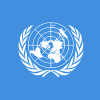Regular institutional dialogue
13 Feb 2020 21:00h - 23:59h
Event report
The last agenda item for the OEWG second substantive meeting was the issue of regular institutional dialogue. The delegates demonstrated some divergence in their positions on this issue.
Some states expressed their support to the creation of a mechanism, or platform under the UN auspice, that must be inclusive and open to participation of all states and involve other stakeholders in the dialogue, however, the purposes of such a mechanism remained unclear.
Egypt proposed to create an institutional platform focused on monitoring and disseminating information regarding the implementation of the agreed-upon rules from the perspective of international security. Such a platform can follow the model of the UN Programme of Action to Prevent, Combat and Eradicate the Illicit Trade in Small Arms and Light Weapons.
Indonesia stood for a dialogue in which all UN member states can participate freely and express their concerns and expectations on issues concerning ICT in the context of international security, including: norms, implementation, and development, the reduction of risk and protection of critical infrastructure, and regional efforts for CBMs.
Fiji stressed the importance of determining both the issues to be discussed and the format of these discussions. The First Committee could be utilised for future institutional dialogue but existing cyber initiatives across the UN system should not be duplicated.
China suggested the new mechanism should respond to the new challenges of cybersecurity, and focus on situational assessment, promote the exchange of views and co-operation, capacity building for all countries, and play an important role in formulating national codes of conduct and legal instruments.
India wants an institutional platform within the UN in the form of a standing and permanent OEWG or a subsidiary body to develop consensus-based rules, norms, and principles for the responsible behaviour of states, as well as define the ways for their implementation and how international law applies in this domain.
Syria proposed a separate organisation under the auspices of the UN to carry out negotiations that would strive to achieve a binding agreement for cyberspace.
Pakistan suggested a specialised institutional forum within the UN that works on the basis of consensus, and focuses on peace and security considerations.
Ghana wants a global institutional mechanism coupled with regular dialogue through bilateral and multilateral forums, as well as the convening of international organisation meetings to ensure that countries are on equal footing in terms of capacity building and incident response.
The UK, the US, Switzerland, Poland, Korea, Argentina, and Belgium viewed OEWG and GGE processes as a form of an institutional dialogue. Moreover, Russia, supported by China, Iran, India, Algeria, Kenya, Syria, and Cuba proposed to continue the work of the OEWG and renew its mandate for the next few years. In addition, Iran, Algeria, and Cuba considered the OEWG as a place for the negotiation of a legally-binding instrument to regulate the use of ICT, which would ultimately lead to the creation of an organ or subsidiary body of the UN that deals with international cybersecurity. Interestingly, Australia and Germany expressed support for the idea of prolonging the OEWG work, but asked Russia to put forward clarifications regarding the new mandate of the group.
Expectedly, Canada, New Zealand, the UK, the EU, the US, Switzerland, Estonia, Japan, Korea, Finland, and Israel expressed a significant level of scepticism regarding the creation of any additional institutional mechanism on cyber issues. The US warned that there is no magic bullet to achieve consensus on international security issues, especially in the context of ICTs. The GGE was successful because it underwent several iterations and it refused to lay regulatory and legally binding agreements precisely because most member states were not at the same level of development and understanding. Ultimately, states should prioritise questions of international peace and security since both groups are creations of the First committee and not broaden the scope of discussions to avoid duplication with other UN processes. Another argument was ‘form follows function’: however, since there was no consensus on what exact issues should states discuss regularly, it is premature to discuss a possible format. Austria and New Zealand said that, delegates should first see if they could come up with the OEWG final report, and then decide on the potential form of institutional dialogue. Switzerland, the UK and the EU considered other types of dialogue that could be useful, particularly the promotion of the participation of all stakeholders, similar to the Geneva Dialogue on Responsible Behaviour in Cyberspace and the Paris Call for Trust and Security in Cyberspace, as well as concentrate on the activities of regional organisations.
Also, there were states like Mexico and Austria that did not have a specific position on the format of any possible institutional dialogue except for adhering to the principles of inclusivity of all states and other stakeholders.
Finally, the majority of states stressed the importance of avoiding the duplication of other existing UN formats that are dealing with ICTs and of considering budgetary challenges in financing a new mechanism.
At the end of the meeting, the Chair outlined the important dates for the OEWG:
-
Informal intersessional exchange on 30 and 31 March in New York, including comments on the pre-draft report.
-
Second informal intersessional exchange on 28 and 29 May, including comments on the revised pre-draft report.
-
Submission of the actual draft report that will be negotiated from 6 to 10 July during the third substantive OEWG meeting
Related topics
Related event

Open-Ended Working Group (OEWG) – Second substantive session
10 Feb 2020 10:00h - 14 Feb 2020 08:00h
New York, USA
